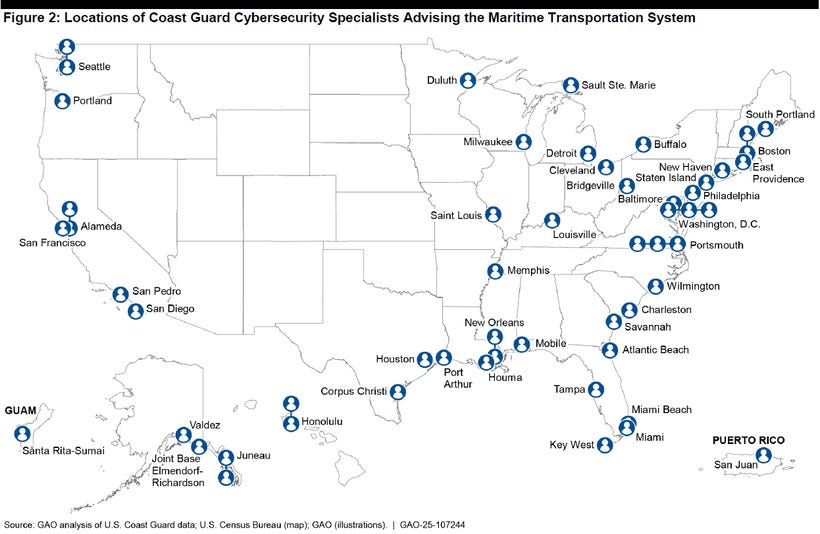Cyber Analysis: U.S. Maritime Cybersecurity Threats From Foreign Adversarial Technologies
The recently released advisories address vulnerabilities in port equipment, networks, and navigation systems, emphasizing the risks posed by Chinese-manufactured technologies
GLOBAL/CYBER — U.S. Maritime Advisories 2025-006 and 2025-007 highlight critical cybersecurity threats to the global Marine Transportation System (MTS) from foreign adversarial technologies and provide updated resources for mariners.
The recently released advisories address vulnerabilities in port equipment, networks, and navigation systems, emphasizing the risks posed by Chinese-manufactured technologies and GPS disruptions on ships and ports worldwide.
These advisories pinpoint specific dangers arising from foreign technologies—particularly those manufactured by Chinese entities—that threaten port equipment, networks, and operational systems integral to shipping. Additionally, they address vulnerabilities in navigation tools, such as the Global Positioning System (GPS), which is essential for determining a vessel’s location, and the Automatic Identification System (AIS), which aids in collision avoidance.
These systems are susceptible to disruptions or spoofing, posing significant safety risks to maritime travel. To counter these threats, the advisories recommend proactive measures, including contingency planning for GPS outages, enhancing security protocols for port infrastructure, and reporting suspicious activities to the U.S. Coast Guard.
These efforts aim to safeguard the Marine Transportation System (MTS), a vital component of global trade and security. The economic significance of the MTS cannot be overstated. According to the U.S. Government Accountability Office (GAO-25-107244), the MTS manages over $5.4 trillion in goods and services annually and supports more than 30 million jobs across 360 U.S. ports.
However, this system faces an escalating array of cybersecurity threats from nation-states—such as China, Iran, North Korea, and Russia—as well as hacktivists and insider threats. These risks, detailed in the GAO report attached to this alert, threaten both national security and economic stability, setting the stage for why cybersecurity is a critical priority for the maritime sector.
The broad threat landscape outlined in the advisories underscores the urgency of addressing these vulnerabilities comprehensively.











